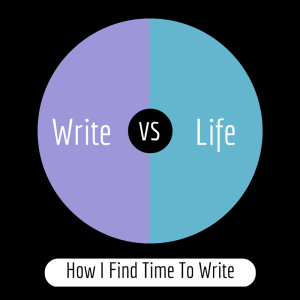A few weeks back I wrote a post on how I find time to write. Making time for your art is critically important — if you never sit down to write then at the end of the day you’ll have written nothing. The rules of art are simple like that. But there’s a second half to the story that isn’t as obvious and doesn’t get talked about as much: you need to find time to write, but you also need to make room for the muse.
This is an idea I first stumbled across when I was reading Danielle LaPorte’s book, The Fire Starter Sessions: A Soulful + Practical Guide to Creating Success on Your Own Terms. In Session 10, “Make stuff that feels good to make”, she writes:
“Muses simply must be adored. They’re as grandiose as they are generous. They like to be respected. If you meet them halfway, they’ll give you the moon, the breakthrough concept, the stroke of genius. Dis your muse and she’s likely to stop dropping by. She righteous. She likes to be appreciated. Genius is like that.”
And I’d never thought about it that way, but immediately the idea struck me as so, so true.
Finding time is only half the battle
Don’t get me wrong — finding the time to write is a mission-critical priority. But it’s still only half the battle.
You have to show up at you computer, at your desk. You have to do it often (preferably every day). You have to do it habitually (preferably at the same time every day).
You have to do it. Period.
But the thing that happens when you start to show up is that you realize you get stuck. You show up and sit down and writer’s block creeps in and suddenly you don’t have any ideas to write about. And that can be endlessly frustrating, especially if you are like most writers and your writing time is pretty limited (maybe you, like me, still work a day job).
But here’s the thing, inspiration always strikes. Maybe she waits an hour, a day, a month, a year.
The only thing I know for sure is that she’ll always be back. Someday. Eventually.
And the question I’d like you to ask is this: what can you do to invite the muse into your life?
I think Danielle LaPorte’s point is the first step.
You have to honor inspiration when she shows up.
Inspiration isn’t always convenient. In fact, I’ll make that a stronger statement: inspiration is almost always inconvenient.
She shows up on the bus when you’re squashed in next to a stranger and can hardly fish your pen out of your pocket. She shows up at work when you’re busy and trying to focus on something else. She shows up when you’re still awake at midnight and counting off the minutes between you and 5:30 am when your alarm goes off and you’re supposed to get out of bed to write. She shows up in the shower. She shows up on your walk home from work when it’s so cold out you risk losing your fingers if you stop to make a note.
She shows up in the quiet moments when you’ve forgotten you’ve waiting, watching for her. The muse is fickle like that.
So first and most importantly, honor the muse when she shows up. Pull out your pen, risk the possibility for frostbite, make a note — do whatever you need to do to make sure that brilliant idea isn’t lost to the fleeting whims of thought. I like Evernote and Google Docs. Anne Lamott likes index cards. From her classic book, Bird by Bird:
“Whenever I am leaving the house without my purse—in which there are actual note pads, let alone index cards—I fold an index card lengthwise in half, stick it in my back pocket with a pen, and head out, knowing that if I have an idea, or see something lovely or strange or for any reason worth remembering, I will be able to jot down a couple of words to remind me of it.”
I’ve been trying this out for a few weeks now — honoring the muse when and how she shows up.
I’ve drafted essays clutching my phone clumsily on the bus. I’ve furiously scribbled poetry over lunch. I’ve grudgingly turned the light back on at 12 AM and gotten back up to write.
And if I have anything to say on the matter at this point it’s this:
Something kind of magical is happening.
I’m writing more. I’m writing better. I’m taking advantage of inspiration when and where it shows up and the ripples of those moments are creeping out into the rest of my regular practice. I write more, more easily, and my work feels more inspired.
I started by trying to schedule writing like a job. Up at 5:30 for writing. Out of bed by 6:45 for work. And then just work, work, work until I was home again and too tired to feel much like writing. And that works — kind of. It works better than trying to schedule my writing time for after work when I’m tired and distractible.
But by honoring the muse, I’ve changed the rhythm of my writing practice. Instead of writing for an hour every day it’s more like I’m always writing. I’m writing in the back of my head, waiting for that magical connection between disparate things that will spark my next great thought.
I’d love to hear your thoughts! How do you make room for the muse in your life?
What’s worked for you in growing your creative practice (writing or otherwise)? What have you tried that hasn’t worked? I’d love to hear from you in the comments. 🙂
Disclaimer: This post contains Amazon affiliate links. I make a (very) small referral commission from purchases made using my links. This does not affect your price.
